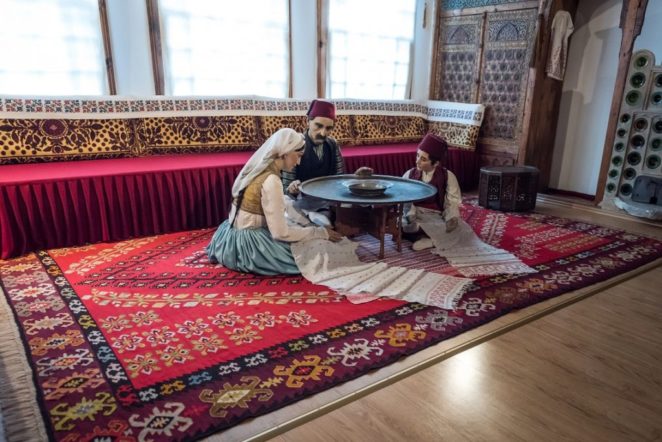
<a href="https://imagemag.ru/img-ba_bosanski-cilimi.html" target="_blank" rel="noopener">Source</a>
Bosnia and Herzegovina is the only European country that has its own Bosnian carp, as a special type of applied, folk, traditional art. In BiH, there is not one artistic sign that stands so stably, as the Bosnian carpet, symbolizes the transient landscape of this country and its people. Kilimla is one of the country’s literary anthems, the song “Bosnia” by Nedzad Ibrišimović: “Bosnia is covered with carpet.”
Both in cultural memory, and in the artistic experience, the Bosnian carpet is a place of spiritual and artistic identification of Bosnian sensuality. The Bosnian carpet summarizes the centuries-old experience of form and color, as the physical perception of the Bosnian villa, and the spiritual value of the house, into which, as in the mosque, it is entered profanely, pure, benevolent and funky.
Until the appearance of the Bosphorus project, a Bosnian man, in neither print or plotting, did not reach the metaphysical significance of the Bosnian rug. If the Bosnian carpet symbolizes the sacredness of a Bosnian house, whose autonomy must be respected, then every person has the same right to inviolability. He can not enter the Bosnian house without a host, nor can he wear shoes on the Bosnian carpet. Man is the dizdar of his life, and no one, to God, has the right to take the right to rule his gates.





Very interesting post…Imam jedan cilim uspomena na moju baku koja je Bosne
divni su tradicija koja netreba da se zaboravi